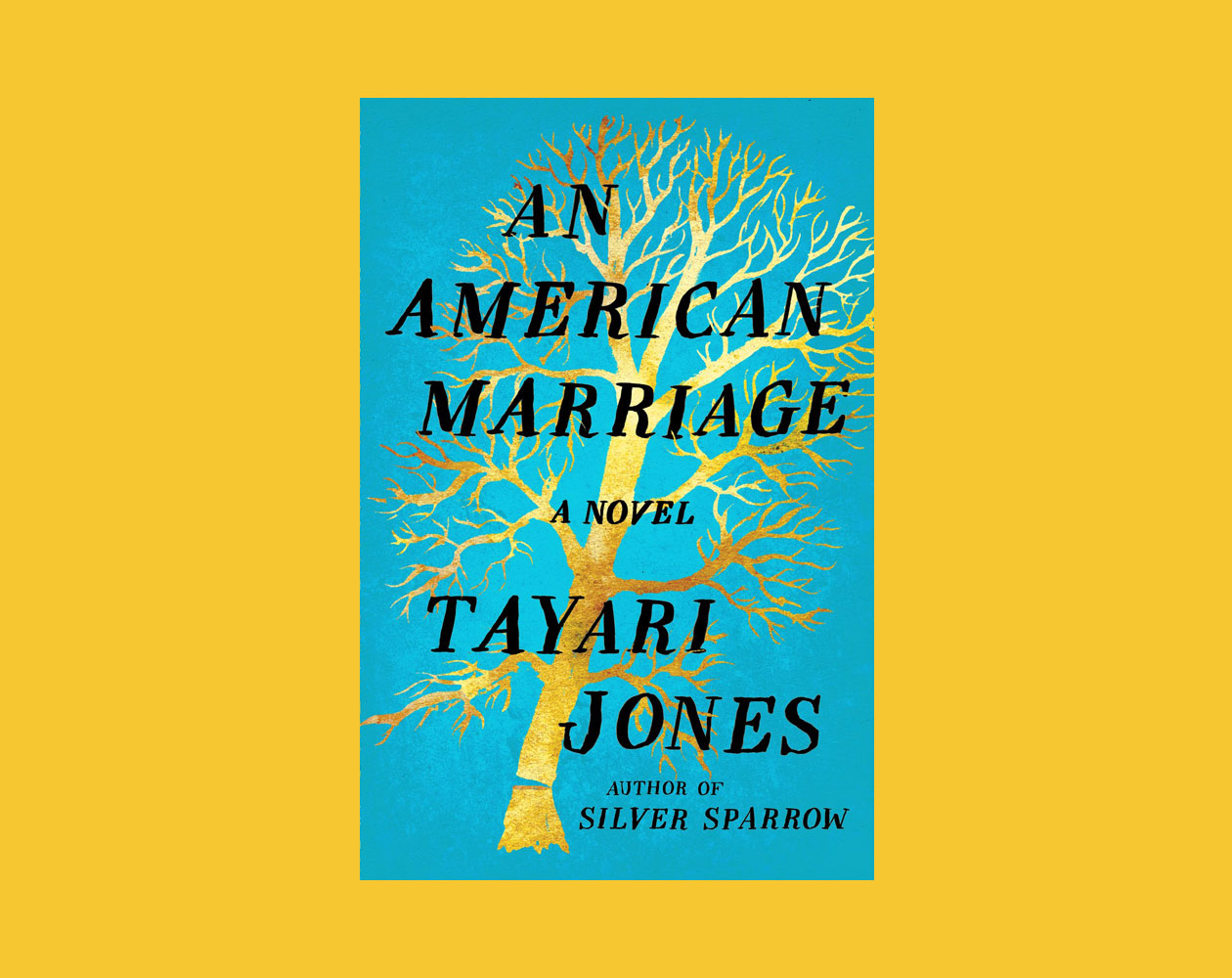The 2018 Rooster Summer Reading Challenge: Week Three
We start our second book of the summer, An American Marriage by Tayari Jones, in conversation with novelists Laura van den Berg and Rosecrans Baldwin.

Welcome to the 2018 Rooster Summer Reading Challenge. We’ve selected six Rooster-worthy works of fiction from 2018 to read over the next three months—two per month—and once a week we’ll meet back here to discuss our reading progress.
Each month we’ll be joined by a new judge, who will discuss the books with us and then select which of the two books that month heads to our summer finale at the end of August—where you, our readers, decide which novel wins the 2018 Rooster Summer Reading Challenge, and an automatic berth in the 2019 Tournament of Books. (And that counts for a lot, considering our 2017 summer winner, Fever Dream, stampeded through this year’s ToB, eventually taking home the Rooster.)
To select our summer books, each of our judges chose a work of fiction they’re particularly excited about this year. The other three books were selected by the ToB Committee according to our normal criteria—novels first published in English in the calendar year that we feel are excellent and interesting. (To avoid conflicts, none of the judges are assigned the books they select.)
A special thanks to our Sustaining Members for making another year of the Rooster Summer Reading Challenge possible. Find out why The Morning News and the Tournament of Books depend on your support, and please consider becoming a Sustaining Member or making a one-time donation.
This month we’re reading Tomb Song by Julián Herbert and An American Marriage by Tayari Jones, with novelist Laura van den Berg.
- See the reading list and discussion schedule
- Catch up on previous chats: Tomb Song (first half, second half)
- Jump into today’s discussion in the comments
Please note: We receive a cut from purchases made through the book links in this article.
Rosecrans Baldwin: It’s Week Three of the Summer Reading Challenge, which means we’re on to a new book: An American Marriage by Tayari Jones. This one’s an Oprah pick and an instant bestseller. It tells the story of Celestial and Roy, newlyweds whose marriage is ripped apart after Roy goes to prison for a crime that Celestial knows he didn’t commit. Celestial takes comfort in her childhood friend Andre. Roy does whatever he can to survive incarceration. It’s a story that tugs your sympathies in unexpected directions, and we’re eager to hear what everybody thinks!
Laura, as soon as I started this book, I knew I was in different territory from Tomb Song. This is good old-fashioned storytelling, pure fiction, a realist novel set in a world I recognize but one that I definitely don’t know at all. Which is what I crave from novels. But my overall impression was one of comfort. I submitted immediately and just got sucked in. And it’s very much a page-turner, perhaps too much so at times for my tastes, no matter the heavy issues. What’s your general reaction so far?
Laura van den Berg is the author of the novel Find Me and two story collections, What the World Will Look Like When All the Water Leaves Us and The Isle of Youth. Her next novel, The Third Hotel, will be published by FSG in August. Laura lives in Cambridge, Mass., with her husband and dog.
Rosecrans Baldwin is a founding editor of The Morning News. He is the author of You Lost Me There and Paris, I Love You but You’re Bringing Me Down. His latest novel, The Last Kid Left (NPR’s Best Books of the Year) is now out in paperback.
Laura van den Berg: With Tomb Song, we talked about reading different kinds of books in different places and I neglected to mention a third category of book: the ones I read everywhere. And An American Marriage has been an “everywhere” book for me. I read it at home and on the subway and at the bar and in the morning and at night and on planes (always a feat, as I have fairly bad flying anxiety). My natural reading temperament tends to pull me toward books that are more in the vein of Tomb Song (esoteric, disorienting, a bit of what-the-heck-did-I-just-read when you hit the end) and so diving into An American Marriage was a refreshing reminder of the pleasures of a deep fidelity to storytelling and to character.
Rosecrans: Have you read Jones before?
Laura: I have! I read her previous novel, Silver Sparrow, and admired it. With An American Marriage, I’m finding the characters, Roy and Celestial most of all, to be immediately and hugely compelling. So alive and so complicated. Also: Jones’s handling of time is masterful.
Rosecrans: Completely.
Laura: Quite a lot of time passes in the novel’s first section, “Bridge Music.” The early scenes are extended, even leisurely, and then after Roy’s incarceration, years pass in short order. Jones captures the texture of time’s passage, the weight and depth of it, without sacrificing momentum—and anyone who has ever written a novel knows how hard this kind of “time management” can be. The letters between Celestial and Roy were such an artful way of illustrating how they are being altered as individuals as time passes and how their marriage is being upended as a result.

Roy is a young executive, and Celestial is an artist on the brink of an exciting career. As the newlyweds settle into the routine of their life together, Roy is arrested and sentenced to 12 years for a crime Celestial knows he didn’t commit, and Celestial finds herself bereft and unmoored, taking comfort in Andre, her childhood friend, and best man at their wedding. After five years, Roy’s conviction is suddenly overturned, and he returns to Atlanta ready to resume their life together. (Amazon / IndieBound / Powell’s)
Book description excerpted from publisher’s summary and edited for length.
Rosecrans: I heard a radio interview recently with Alan Hollinghurst, who pointed out that one way novelists mature is by learning how to deal with time. Young novelists want to stuff in every second, they want to account for each day passing; seasoned novelists can jump decades without you noticing and still sweep you along.
One thing this book is about is captivity, incarceration. Obviously Roy’s time in prison, but I’d also point to Celestial’s time as a wife on the outside, and Andre’s time as Celestial’s admirer. Suffering is relative, but do you find yourself siding with one character over another?
Laura: Oh wow, I think what Hollinghurst has to say about time is so true. And time works on these two characters very differently. To that end, I don’t know that I could side with one character over the other. The novel succeeds in making me feel for Celestial and Roy in near-equal, if different, measure—and I was also frustrated, upset even, with both of them at times too, even if I feel like I can empathize with their motivations for doing what they do and saying what they say (so far). How about you?
Rosecrans: Frustrated for sure, but something about Roy is really getting to me. Maybe it’s a guy thing, a straight guy thing, a guy-with-aspirations thing, I don’t know, but I still felt myself being able to slip into his shoes pretty easily.
Jones said recently in an interview, “When I was writing this book, I was driven a little crazy because you have your friends who are your readers who read it as you go along, and everyone was just so upset. They all were upset with Celestial for not performing the role in the narrative that they were expecting.” What’s your reaction to Celestial like so far?
Laura: Well, Celestial is an artist and I think artists can have a bit of ruthlessness in them—which Roy calls her out on, in his way, through the letters in “Bridge Music.” One compelling aspect of Celestial’s character is the way she’s pushing back against gendered expectations, the idea that women should be all-sacrificing, when it comes to their spouses and families. Meanwhile, Celestial, given the severity of Roy’s initial sentence, dares to push back on the suggestion that her life, in a sense, should end with his. She dares to move on. She dares to rebuild.
Rosecrans: What do you mean by ruthlessness? In your new book, The Third Hotel, Clare, a recent widow, arrives in Havana for a film festival her husband was supposed to attend. She’s not a film scholar herself, but she proceeds with a sort of ruthlessness—especially after she spots her supposedly dead husband in a crowd. Is that ruthlessness?
Laura: On the one hand, I think Celestial is making the wholly reasonable choice to continue with her life and/also—there’s that moment I mentioned in “Bridge Music.” Through the letters between Celestial and Roy, it’s revealed that Celestial used Roy to inspire the work that launches her into the spotlight. She models a doll from one of his baby photos, one that was initially meant as a commission for his mother; when the doll wins a prize and Roy learns that, despite the doll’s origins, he has been omitted from the public narrative, he’s understandably upset. As Celestial explained her reasoning, I thought she was sincere and I also thought that her artistic vision just took over, at a certain point. The origin of art is sometimes painfully complicated, after all. Also, in this context I don’t mean ruthless as a pejorative. In fact, I think a smidge of the ruthless is imperative in an artist—just a smidge, though. Much more than that and one runs the risk of becoming insufferable. Celestial strikes me as having about the right amount.
As for Clare: She’s not an artist, so her ruthlessness is coming from a different place. Her husband has just been killed in an unsolved hit-and-run and her father is nearing the end of his life, so she is lodged in a very intense period of grief, at once sudden and long-running—so forceful that it becomes blinding.

The Infinity Rooster finds its way to your beach chair, with a towel you could spot from the breakers. New batches print every three days—order yours now. As a reminder, Sustaining Members receive 50 percent off everything at the TMN Store. To find out why we’re asking for your support and how you can become a Sustaining Member, please visit our Membership page.
Rosecrans: We’re two white people reading a book about black experiences, and black experiences with some really nuanced topics—class, region, gender, social injustice. Like I said earlier, I have so much empathy for Roy’s anger, his frustration, his dedication, his dreams. Where are you connecting?
Laura: I think when novels contain characters this fully realized they tend to invite a lot of different readers in, you know?
Rosecrans: Well, it’s definitely selling a shitton of copies.
Laura: My most immediate connection is with Celestial, for sure—with her creative ambitions and the way they help her forge a path through a bewildering new reality. She has managed to thrive, in some regards, in the midst of a cruel and painful situation—and yet of course there are huge costs. Maybe she’s rejected the notion that she should sacrifice her own prospects at the altar of her marriage, but that doesn’t mean she’s not carrying a lot of guilt and a lot of pain; she is haunted by everything that’s happened. And when it comes to the state of Roy and Celestial’s marriage, it seems like there is no “good” path out: Everyone loses, no matter what happens. This is pivoting in a slightly different direction, but I also found the novel to be incisive on class, more specifically the relationship between class and expectations, a sense of possibility; I’m interested to see how those dynamics will complicate what’s to come.
Rosecrans: I want to talk about this book all at once, but I deliberately stopped my reading so we can address it in two parts and talk about the second half next week. Suffice to say, I really don’t know where this book is going. I’ll guess we’ve got a whole bunch of tension and tough decisions coming up—I’m already cringe-ing to face them. And even taking into account the things about this book that frustrate me, which I’ll get into more next week, I’m locked in. How about you?
Laura: A confrontation between Celestial and Roy (and possibly Andre) seems inevitable, don’t you think? I could be wrong about where we’re heading, but at least for now the tidal pull of that collision is part of what has made An American Marriage as a “read everywhere” book for me. I also don’t anticipate that this novel will have a neat or completely resolved ending. Anxious to know where all the characters will land!
Rosecrans: For sure. Well, that’s it for us, folks. Let us know what you think in the comments, and then meet us here next week for a discussion of the novel’s second half, plus Laura’s big decision on which book she plans to send to the summer’s championship round. Thanks!
Subscribe to the Rooster newsletter
You will receive email from The Tournament of Books. Opt out at any time. (View our privacy policy.)

